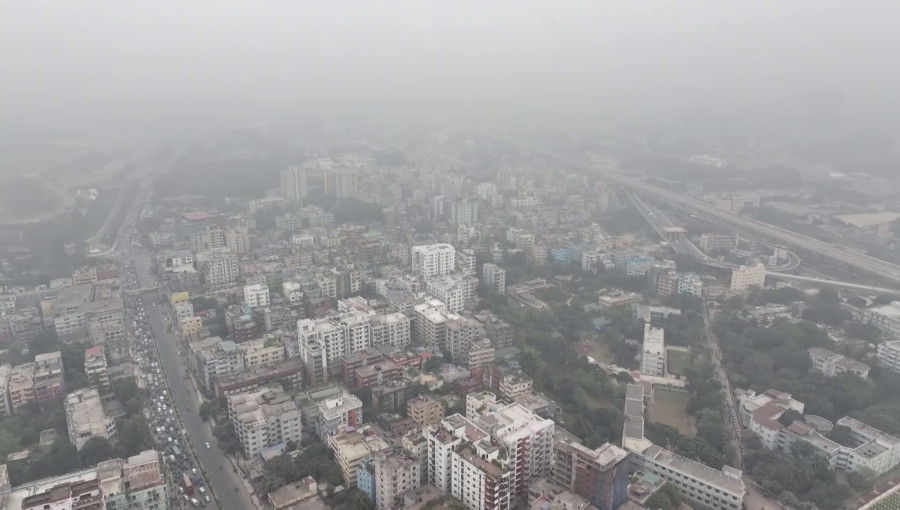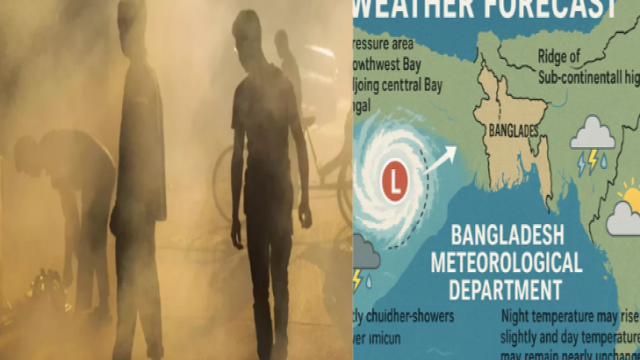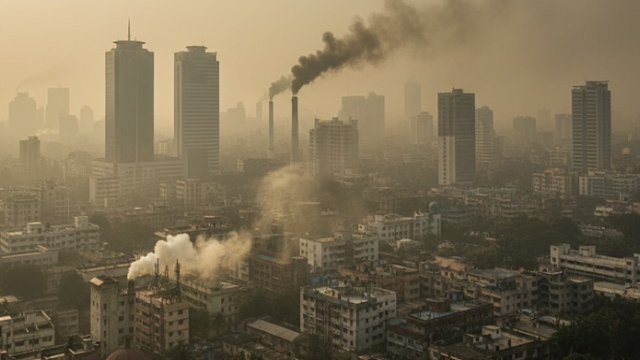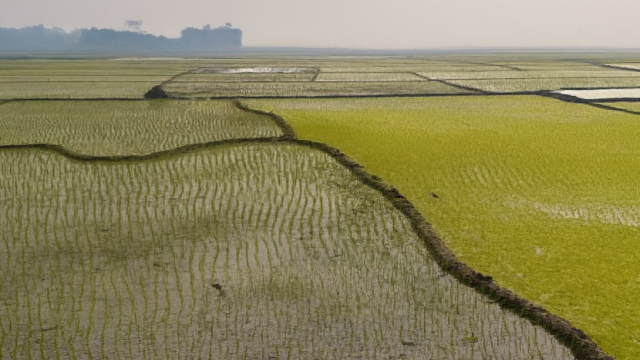Dhaka Feb 24, (V7N) - Dhaka, the densely populated capital of Bangladesh, ranked tenth among the cities with the worst air quality, recording an AQI score of 163 at 9:15 am on Monday. The air was classified as ‘unhealthy,’ posing health risks to residents, according to the AQI index.
An AQI score between 150 and 200 is considered ‘unhealthy,’ meaning it can cause health effects for everyone, particularly those with respiratory conditions. When the AQI is between 201 and 300, the air is classified as ‘very unhealthy,’ while a reading above 301 is deemed ‘hazardous,’ carrying severe health risks.
Mongolia’s Ulaanbaatar, India’s Delhi, and Sarajevo in Bosnia-Herzegovina occupied the top three spots in the global air pollution rankings, with AQI scores of 223, 214, and 204, respectively. The index serves as a daily air quality report, helping residents assess pollution levels and related health concerns.
The AQI in Bangladesh is determined based on five major pollutants: particulate matter (PM10 and PM2.5), nitrogen dioxide (NO2), carbon monoxide (CO), sulfur dioxide (SO2), and ozone. These pollutants significantly impact public health, particularly among children, the elderly, and individuals with pre-existing conditions.
Dhaka has long struggled with severe air pollution, which worsens during winter due to increased dust, vehicular emissions, and industrial activities. However, air quality typically improves during the monsoon season when rain helps clear airborne pollutants.
In an effort to combat pollution, environmental adviser Rizwana urged students to actively participate in reducing noise and plastic pollution, which also contribute to environmental degradation in Dhaka. Experts emphasize the need for stricter regulations and sustainable policies to tackle the city’s growing air quality crisis.
Air pollution is a leading cause of health complications worldwide. According to the World Health Organization (WHO), approximately seven million people die annually due to pollution-related illnesses, including stroke, heart disease, chronic obstructive pulmonary disease (COPD), lung cancer, and acute respiratory infections.
To address this issue, industries in Dhaka are being encouraged to adopt green technologies and sustainable waste management practices. By reducing industrial waste and chemical runoff, businesses can play a significant role in minimizing river and air pollution in the capital.
END/ARP/RH/






























Comment: